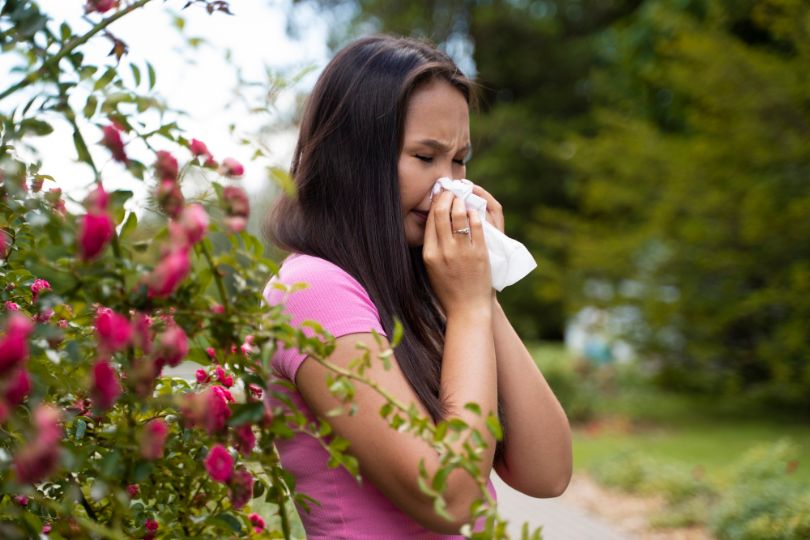Hay fever is also known as allergic rhinitis. It is a common condition with symptoms similar to a cold. For many people, it may be hard to tell if symptoms are caused by the common cold or allergic rhinitis.
What are the Causes of Hay Fever?
Hay fever is caused by an allergic response to airborne substances, such as pollen and dust, whereas a cold is caused by a virus.
When you are exposed to an allergen, the body mistakes it as a threat and produces an antibody to attack it. Chemicals called histamine are also released. It’s histamine that actually causes the symptoms. If you suffer from hay fever, the time of year in which it occurs depends on what substance you may be allergic to.
During the spring, tree pollen is prominent. Grass pollens are present during the spring and early summer. Weed pollen is common during the autumn season. Fungi and mold spores are present in warm and moist climates.
What are the Symptoms of Hay Fever?
The symptoms may differ throughout the year, depending on what substance you are allergic to. Common symptoms include:
- Sneezing
- Watery eyes
- Itchy throat
- Itchy nose
- Blocked or runny nose
Severe symptoms are sweats, headaches, loss of smell and taste, facial pain caused by blocked sinuses, and itchiness that spreads from the throat to the nose and ears.
Hay Fever Treatment
There are a variety of medications. Some people have found that a combination of several medications achieves the best results:
Antihistamine sprays or tablets are commonly available without a prescription. The medication stops the release of histamine and effectively relieves the symptoms of runny nose, itching, and sneezing. Examples of antihistamines include Claritin, Zyrtec, Allegra (not available on DoctorSolve.com due to pseudoephedrine abuse), and Astelin.
Eye drops reduce itching and swelling in the eyes that may be present with hay fever.
Nasal corticosteroids are nasal sprays that treat inflammation caused by hay fever. Examples of nasal corticosteroids include Flonase, Veramyst, Nasonex, and Beconase. Saline mist nasal sprays or drops may also be effective in relieving hay fever symptoms.
Oral corticosteroids are prescribed for severe hay fever symptoms and should not be used as a long-term treatment.
Immunotherapy can also work, which is called desensitization treatment. This is a process in which the person with hay fever receives doses (usually in the form of injections) of the substances he/she is allergic to in order to modify or stop the allergic response. This treatment is very effective in treating a wide variety of allergens such as pollen, mites, animal dander, and stinging insects.
Also Read
6 Myths About Swine Flu You Need to Know
Save an Additional 5% on the Generic Alternative to Flonase!
8 Effective Ways to Protect Your Family from Zoonotic Diseases







